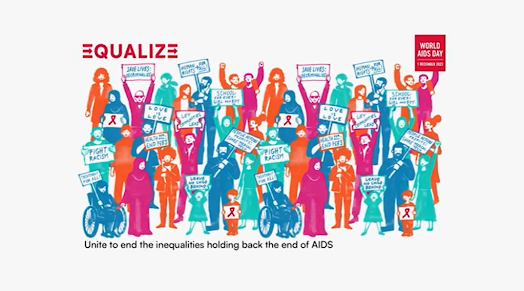FORUM: “We stand together.” Zero Discrimination Day 2025. Community healthcare and support providers are too often faced with challenges—stigma, discrimination, criminalization, funding cuts, and political backlash—despite their primary role in ensuring that health services reach everyone in need, including the most vulnerable. Compounding this, the current crisis caused by the shift in U.S. government funding has resulted in deep anxiety and pain for many community organizations as the future of life-saving community-led HIV prevention, treatment, care, and support programmes are at risk, despite the clear evidence of the positive impact of community-led services. Community led services are essential to the sustainability of the AIDS response up to and beyond 2030, yet community-led responses are too often unrecognized, under-resourced and in some places even under attack. Crackdowns on civil society and on the human rights of marginalized communities are obstructing communities from providing HIV prevention and treatment services. The underfunding of community-led initiatives is leaving them struggling to continue operating as well as holding them back from expanding. If these obstacles are removed, community-led organizations can add even greater impetus to end AIDS as a public health threat by 2030. The sustainability of the AIDS response now and into the future is critical with communities at the centre. It’s time Now to reaffirm global commitment to their leadership. Follow the conversation with the hashtags: #March1, #zerodiscriminationday, #Zerodiscrimination.
EVENTS: March 1st; To observe the Zero Discrimination Day 2025 and its Eleventh edition, the UNAIDS is reflecting on Standing Together with communities. Communities are essential to the sustainability of the HIV response and to broader global health efforts. They must be financed and supported in their steadfast commitment to ensuring that all people living with and affected by HIV have access to the services they need and are treated with dignity and respect. On this year’s Zero Discrimination Day, UNAIDS calls on countries, donors and partners to fulfill their commitments and Stand Together to support communities as they work to build sustainable HIV responses by ensuring that:
- Community-led organizations are able to deliver life-saving services and advocate without discrimination or harassment.
- Community-led organizations can legally be registered in the country they are working in and receive sustainable funding.
- Communities are supported in providing health services to vulnerable and marginalized groups.
- Communities are supported and funded in work to monitor respect for human rights including ending the criminalization of key populations, stigma and discrimination and gender inequalities.
- Government health services include community representatives within their structures as partners in the development, implementation and monitoring of health programmes to ensure they are accessible and acceptable to people living with HIV and marginalized populations.
On March 1st, and across the whole month of March, events, activities and messages will remind the world of this vital lesson and call to action: to protect everyone’s health, protect everyone’s rights. The EU region and partner countries have addressed HIV-related rights violations, societal barriers, including laws and policies, stigma and discrimination that fuels the AIDS pandemic. To date, 29 countries, none of which are EU member states, have joined the Global Partnership on assisting countries in achieving the 10–10–10 targets by removing laws that harm and creating laws that empower. Register to participate!
STATEMENTS: “Through upholding rights for all, we will be able to achieve the Sustainable Development Goals, and to secure a safer, fairer, kinder, and happier world – for everyone.” Message from Winnie Byanyima, Executive Director of UNAIDS, on Zero Discrimination Day 2025, March 1st.
“The only way to end AIDS is by working together with communities. They build trust and reach people which many traditional health facilities find hard to reach—the most marginalized, and people who face stigma and discrimination,” said Mme Christine Stegling, UNAIDS Deputy Executive Director. “To end AIDS by 2030, sustained investment and support for community-led responses is crucial.”
“No society can thrive where discrimination exists,” said Mr. Marc Angel, Vice President of the European Parliament and a long-time HIV activist. “Every right denied, every barrier imposed weakens us all. On Zero Discrimination Day, let’s make it clear: equality is not an option—it’s a necessity. We stand together.”




